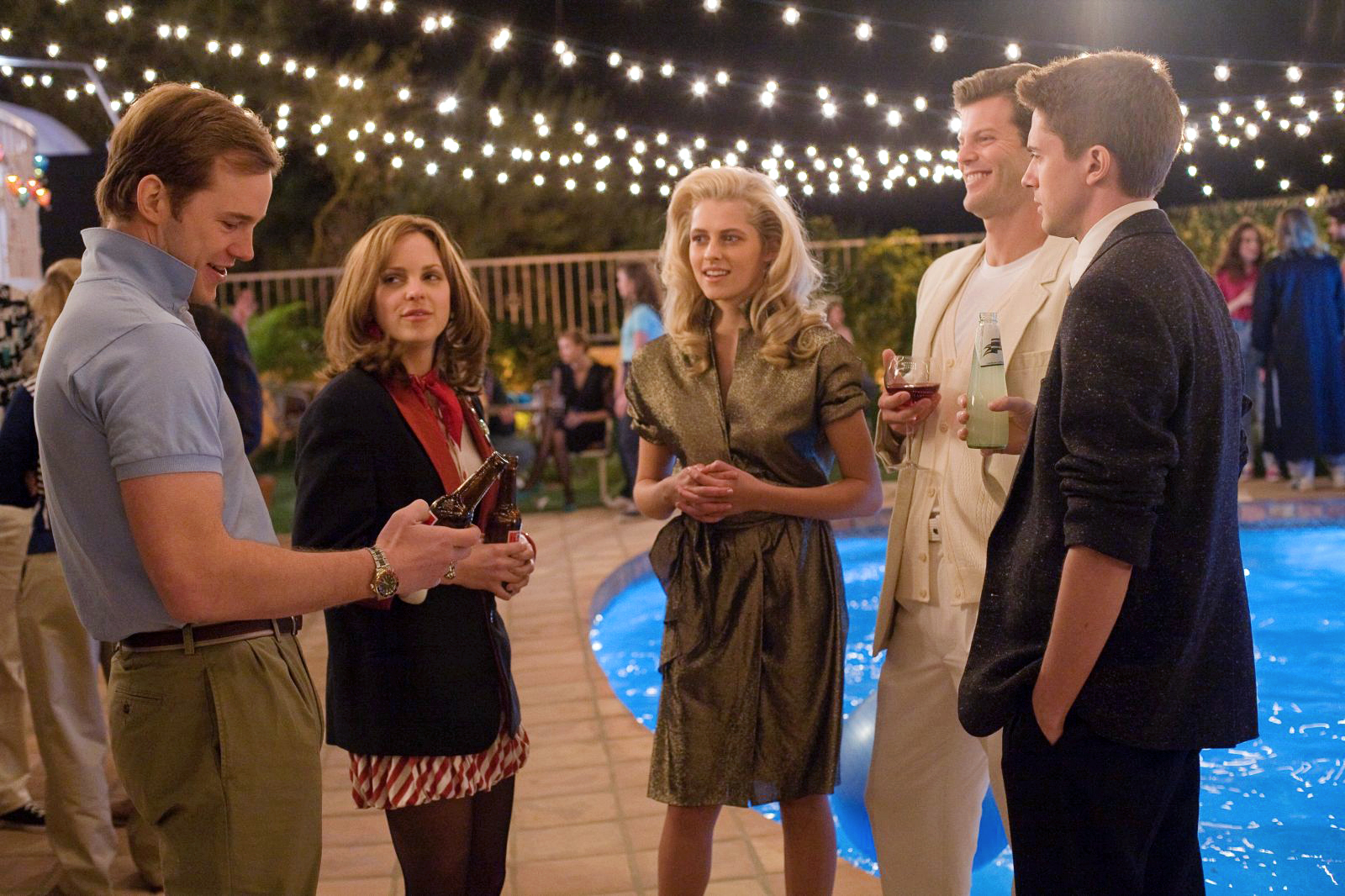The film opens with a close-up of a boy in his late teens, his face creased with lines of worry. “I just don’t know what to say anymore,” he whispers, slowly, choosing every word carefully. Then the camera pulls back, and we see that the boy is alone in his bedroom, hunched over his cell phone, texting his girlfriend.
If we’re not careful, this could be our generation’s cinematic legacy.
As Topher Grace’s “Take Me Home Tonight” proved when it opened on Friday, we haven’t finished reliving the ’80s on screen. That’s not surprising: It was an unusually photogenic decade. The glam metal hair and neon leggings provide easy cultural landmarks, the music is epic and the works of John Hughes and John Cusack alone are enough to inspire an endless string of homages.
In the next few years, though, the torch will be passed to filmmakers with nostalgia galore for the ’90s, and they will give us tales of grunge rockers, early Internet usage and Clinton-era economic stability. And a few years after that, they’ll pass the torch again, and it’ll be time to tell our tales of the aughts.
On a broad, political scale, it should be easy. Iraq war films have had a notoriously hard time at the box office, but with some distance, the War on Terror, and the Bush years in general, provide enough emotionally charged references to background a thousand coming-of-age tales.
We’ll need to be incredibly careful, of course, with the tragedies of Sept. 11, 2001. Already, one film ““ Robert Pattinson’s “Remember Me” ““ raised the ire of critics by tacking on that day as a final set piece.
But if Spike Lee could make “25th Hour” just a year after those events and capture the most delicate of moods with a tense conversation before a window overlooking Ground Zero, it seems reasonable to expect that one of our peers will someday replicate what it felt like to be an impressionable young person at that time.
If ’80s flashback movies like “Take Me Home Tonight” are any indication, though, we can expect most of our generation’s filmic nostalgia to be much more light-hearted. And that’s where we may run into problems: The 2000s just didn’t have the kind of instantly recognizable little details that would sustain our own version of “Hot Tub Time Machine,” let alone a whole “American Pie” series.
Blame the Internet for that. Once the world squished into one big, interconnected chat room, pop culture proliferated into an ant colony of niche markets.
Take music, for instance. The ’70s had acid rock, the ’80s had hair metal, the ’90s had grunge. In the past 10 years, the biggest story has been the financial erosion of the music industry, and as young people migrated online in search of their own favorite sounds, the artists who rose above the crowd did it with Auto-Tune and the most superficially catchy hooks. We’ll enjoy hearing the songs of our teenage years, but it’ll be harder to give the decade a cohesive soundtrack.
If we look at it that way, maybe we should be proud that our generation cannot be defined by a few songs or items of clothing.
But in fact, the adolescence of the 2000s has a universal truth, and it’s a much bigger challenge for filmmakers.
It’s that boy in his bedroom, texting his girlfriend. In the last decade, personal communication turned inward and online; our parents have been saying for years that it’s bad for our emotional growth, but I imagine it’ll be bad for movies, too.
Cusack standing outside his crush’s window with a boom box is a lot more photogenic than two people sharing a pair of iPod earbuds.
There’s a lot more drama in a phone call ““ the rhythmic tension as the other line rings, the crackling voice of nerves ““ than in the typing of an emoticon.
Of course, we’ve already had one 2000s movie ““ it was called “The Social Network,” and I imagine it’ll be a while before we best it.
But that film was about the creation of our strange new world. Pretty soon we’ll have to figure out how to represent the world itself.
